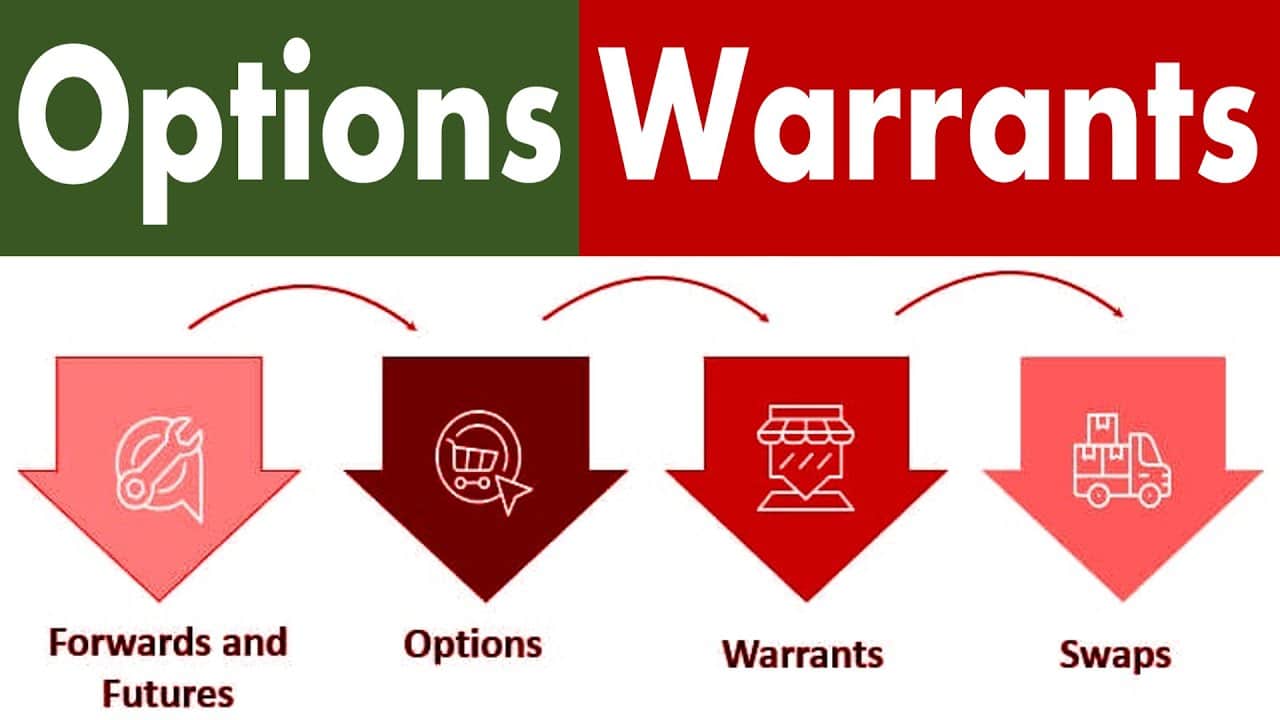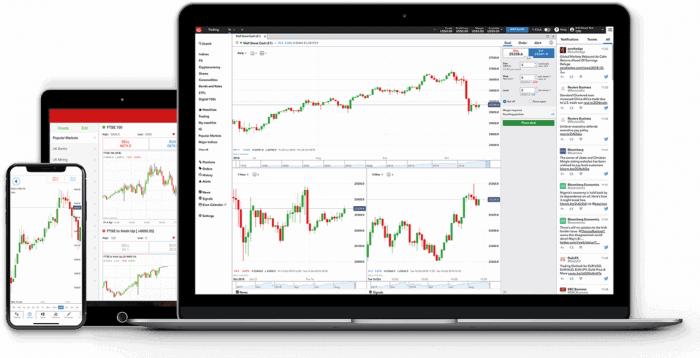All about the warrant

The warrant is a financial instrument which can result in considerable gains or losses due to its leverage effect. It allows the investor to buy or sell various underlying assets at a predetermined price and expiry date. The warrant is a speculative product which offers investment and speculation possibilities.
In this article, we will explain what a warrant is, its different types and how it works.
⛳️ What is a warrant?
It is a leveraged stock market product that gives an investor the ability to amplify changes in an asset whether it is up or down.

Get 200% Bonus after your first deposit. Use this promo code: argent2035
The so-called underlying asset can be a stock market index, a share, a currency, a bond, a raw material or even stocks given as collateral like goods in a campaign loan.
Article to read: Obtain crowdfunding for your project
The investor, by buying a warrant, tries to anticipate the course of the evolution of the value of the asset upwards or downwards. Warrants are set up by financial establishments which ensure the keeping of the markets themselves, the quotation and the distribution.
The have traded The Warrants on the stock exchange and they can be bought or sold at any time.
⛳️ Types of warrants
We now distinguish between two types:
- The call warrant is an option that gives its holder the right to buy an underlying asset at a price that has been agreed in advance on a specific date, this date is also called “maturity”. You should know that we buys a “warrant call” when placing a bet on the rise in the underlying asset.
- The put warrant which is a put option, gives its holder the right to sell the underlying asset at a predetermined price on a specific date. Note: we sell a “put warrant” when we anticipate a fall in the underlying asset, which can be very useful to prepare for a fall in its value.
You should know that warrants are assets created by financial institutions. Those responsible for liquidity and management are called issuers. And finally, market makers are there to keep the market buoyant.
Article to read: Cash management best practices
The warrant therefore complements shares, bonds or any other medium (financial asset).
⛳️ What is the value of a warrant?
Un Warrant Call is a warrant which gives you the possibility to buy a share in height of 5 €. The parity in this case is 1 warrant for 1 share. If it therefore happens that the action costs 4 €, the intrinsic value of this warrant will be €1.
By observing the lifetime of a warrant, we will see the probability of the variation in the cost of the underlying asset, which is not taken into account in the calculation of the intrinsic value of the warrant in question.
⛳️ How do warrants work?
A warrant gives its holder a right which he may or may not exercise. That of selling the underlying asset.
At that time, the price of this transaction is determined by the company that issued the asset in advance and this price is called the strike price. The duration of a mandate is also defined in advance by this entity.
The warrants of " European type " can only be exercised when their expiry date arrives, on the other hand, the warrants of " american guy » give flexibility to exercise during the period between the purchase of the warrant and its expiry date.
As long as there is an interested investor, a warrant can be freely traded for sale. In general, these are instruments whose maturities vary between one and two years.
⛳️ The different characteristics of warrants
✔️Underlying
This is the security on which a warrant is issued. This value can be exchanged for financial assets such as stocks, commodities, indices, currencies, bonds.
✔️The strike or exercise price
It is the price agreed in advance with which an investor can buy or even sell the underlying asset when the warrant expires if he finds that it is time for him to exercise his right. This price is determined when the warrant is issued.
✔️The premium
It is the price of the warrant that is determined by comparing supply to demand on the market. This price is divided into two values:
- intrinsic value : this is the profit, the benefit that the holder would obtain directly if he decided to exercise his right on the Warrant. This profit could at no time be negative.
- The value of time : this is the difference between the cost of the warrant and its intrinsic value. This value is calculated according to several elements such as, for example, the volatility of the support and the life of the warrant. The time value thus shows the probability of a gain that can be made on the warrant given the various parameters presented to us by the market.
✔️Leverage
A warrant is offered on the market with different leverage effects. Generally, they are measured by spanning the ratio between the variation of this on the variation of the underlying asset.
The higher the leverage, the greater the variations in the cost of the warrant relative to that of the asset.
✔️The deadline
It is the life limit of the warrant that is set at the time of issue. In general, warrants are on an automatic exercise and end their quotation 6 working days before the arrival of the limit.
✔️ Parity or quota
This is the number of warrants needed to exercise one's right to an underlying asset. This is therefore the minimum number of warrants required to be able to trade on the market.
✔️The break-even point or blockage
This is the point at which a holder of a warrant wants to exercise his right, he will not be able to obtain either loss or profit.
Use of warrants
✔️ Call warrant
Let's imagine that the shares of company AC are at price of 10 €, and you estimate that their share price will increase by more than €1 during the next two months.
You therefore have the possibility of going to this market to buy it with a call warrant, this will give you the right to acquire the AC shares at the price of 11 €.
Imagine that the cost of the action reaches 15 € ; if you hold an asset, you will be able to benefit from this increase by exercising your right to buy the AC share at price from € 11 as agreed in advance.

Get 200% Bonus after your first deposit. Use this official Promo code: argent2035
✔️ Put warrants
Now let's say you don't rush and wait for the stock price to drop more than $2.
In this case, you must opt for a put warrant, to exercise the right to sell the AC share at the price of 8 €. If the stock drops, for example, to €7, then you will have the option of exercising your right to sell the stock at a price of €8, thus making a profit.
Article to read: How to finance your project on a tight budget
If we take an exercise with real warrants, you will see that we will also take into account the cost of the premium or even that of a possible broker.
Advantages and disadvantages of warrants
The warrants are generally used with the aim of diversifying an investor's portfolio, hedging by taking a position. But acquiring it does not only present good days
✔️ Advantages of warrants
Warrants listed on Euronext Paris facilitate the call for leverage by giving investors the opportunity to invest a small sum, which presents a limited risk of loss.
Article to read: Cash management best practices
And also, these financial products are very often easily accessible using a classic securities account, or through an intermediary (bank branch, online broker, brokerage firm, etc.).
✔️ Disadvantages of Warrants
Warrants, with a lifespan and a time value that only decreases, present the investor with the risk of capital loss of the entire amount invested.
Warrants are high risk. To be able to control the market, it is advisable for the various investors to use orders that will allow them to minimize losses if they arise.
FAQ
Can the value of a warrant be modified?
The value of the warrant is fixed in the market and the stock spreads constitute the intrinsic value of it. This value cannot be increased by an investor.
When can an investor exercise his right?
This will depend on the type of warrant he has. If he holds a call warrant, he can only exercise it on the expiry date. But, if it is a put warrant, he may exercise it during the term of the contract.
We are done and we hope you are satisfied. If so, please mention your opinions in the comments, as they will help us improve. Don't forget to share with your friends and acquaintances.



















Leave comments